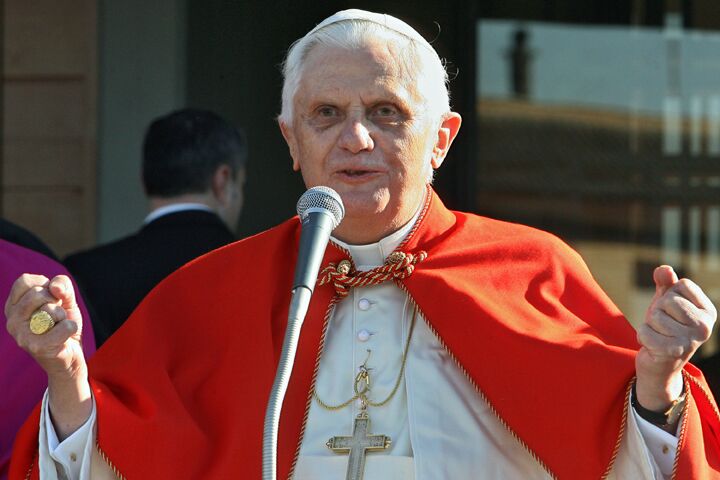
Vatican Asserts Right to Spread Faith
The Vatican has muscularly affirmed its duty and right to proselytize for new converts in a new document. The manuscript was released on Friday by the Catholic Church’s Congregation for the Doctrine of the Faith (cdf), historically known as the Inquisition.
The “Doctrinal Note on Some Aspects of Evangelization” admits “a growing confusion about the church’s missionary mandate” and reacts to critics in various countries where the organization has campaigned to win new converts away from the entrenched religions.
Along with publishing the doctrinal note, the Catholic Church has initiated an “unusually strong publicity effort,” according to Catholic World News.
The document vigorously upholds and promotes Catholicism’s declared right to evangelize the world and states that all believers are duty-bound to participate in “the Christian mission of evangelization.”
“[T]he incorporation of new members into the church is not the expansion of a power group, but rather entrance into the network of friendship with Christ which connects heaven and Earth, different continents and ages,” the document says.
“Indeed if a Christian did not try to spread the gospel by sharing the excelling knowledge of Jesus Christ with others, we could suspect that Christian either of lack of total conviction on the faith, or of selfishness and laziness in not wanting to share the full and abundant means of salvation with his fellow human beings,” Cardinal Francis Arinze said at a press conference introducing the doctrinal note.
The manuscript addresses criticisms of Catholic evangelizers trampling on other Christian denominations’ turf, calling for missionaries to respect the “tradition and spiritual riches of such countries as well as a sincere spirit of cooperation.” According to the cdf, however, this does not mean Catholics should not expand their sphere of influence.
The “Doctrinal Note on Some Aspects of Evangelization” is in fact an outgrowth of a process begun by then-cardinal and head of the cdf, Joseph Ratzinger. Augustine DiNoia, American undersecretary of the cdf, said Ratzinger saw an urgent need to challenge “a pluralistic theology of religion which essentially states that all religions are equally valid in leading a person to salvation ….”
Ratzinger, now pope, has issued even more aggressive statements than this latest doctrinal note. In 2000, Ratzinger’s cdf issued “Dominus Iesus,” which clarified that the church was indeed in favor of ecumenism, but not compromise, with other Christians. Any reconciliation would have to be dominated by and on the terms of the Catholic Church.
Ratzinger added that “there exists a single Church of Christ, which subsists in the Catholic Church, governed by the successor of Peter [the pope] and by the bishops in communion with him.” According to Ratzinger, only churches that submit to the pope’s authority are to be considered “true particular churches.” The document stated that other religions were “gravely deficient.”
Just prior to “Dominus Iesus,” Ratzinger issued a letter to all Catholic bishops banning the term “sister churches” for other Christian denominations: “It must be always clear … that the one, holy, catholic and apostolic universal church is not the sister, but mother of all the particular churches.”
“Dominus Iesus” also asserted that the term “church” should not be used to describe Protestant churches.
In June 2005, editor in chief Gerald Flurry wrote, “Bible prophecy says that the new pope, Benedict xvi, is going to be far to the right of Pope John Paul ii. And we believe this pope will be the last one. Benedict xvi will add to the church’s power in another way. We are about to see the Protestant churches return to the Catholic Church—the throne—from which they rebelled.”
Continue to watch the Catholic Church grow increasingly assertive in its efforts to expand its influence.
